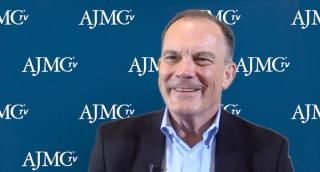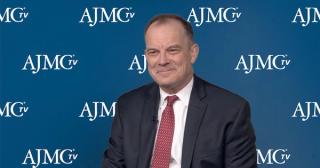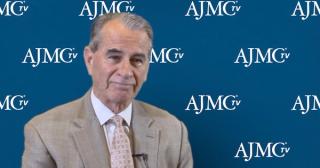
Employers
Latest News

Latest Videos

CME Content
More News

Low- and middle- income Medicare beneficiaries face increasing financial burden as employer coverage erodes.

Health-related workplace absenteeism may provide additional information about the extent of influenza sickness in the working-age population, a CDC report said.

Successful partnerships between employers and healthcare organizations need trust and transparency, said Vanessa Sammy, MPA, MHSA, senior director of commercial strategy and implementation for Remedy Partners.

The participation in workplace health promotion programs (WHPPs) varies depending on sociodemographics and occupation, suggesting the need for employers to adjust their WHPPs for maximum participation, according to research.

Panelists at the National Alliance of Healthcare Purchaser Coalitions' Leadership Summits highlighted the ways their companies are customizing care and benefits to meet the needs of their employees.

If the High-Cost Plan Tax, also known as the Cadillac tax, goes into effect in 2022, 21% of employers who offer coverage would be impacted, and that percentage would increase fairly rapidly by 2030.

An exercise-focused intervention may be effective for improving mental health, work ability, and productivity outcomes while reducing metabolic syndrome severity for individuals at a high risk for cardiovascular and metabolic disease, according to researchers.

Congressional efforts to end surprise medical billing have a real possibility of succeeding, but recent discussions around transparency have a lot more challenges, said Lauren Vela, senior director of the Pacific Business Group on Health (PBGH).

Attempts to curb surprise medical may still result in patients getting costs elsewhere, said Bret Jackson, president of the Economic Alliance for Michigan.

A new study by Willis Towers Watson finds technology plays an increasingly important role in employee health benefits.

The Triple Aim will be within reach when there is greater stakeholder engagement and systemic ownership. A good start is for more employers to provide more American workers with access to high-quality wellness programs that can impact chronic disease with population health strategies.

Individuals in traditional blue-collar jobs were the main beneficiaries of the Affordable Care Act because they were less likely to have employer-based coverage before the law, according to a new study.

The study involves a novel way to measure success for diabetes prevention programs, which historically have been evaluated by the amount of weight participants lose.

Bringing together different stakeholders in healthcare to share the challenges they see and their own understanding of how to fix the problem can help make impossible things happen and bring change to the healthcare system, said Elizabeth Mitchell, president and chief executive officer, Pacific Business Group on Health.

Treating illnesses is important, but it would be a mistake to think that is the full extent of health. Panelists during the National Alliance of Healthcare Purchaser Coalitions’ 2019 Leadership Summits, held June 24-26 in Pittsburgh, Pennsylvania, discussed the impact of social determinants and past trauma on health and how employers can ensure they are addressing these issues to improve health and outcomes.

The prices of targeted oncology therapies have grown substantially, but revenues have not. This is due in part to large declines in per-drug patient counts.

The government taking a backseat has opened the market up to disrupters from outside the healthcare industry.

If employers want to be able to have an impact on the healthcare system and help create lower cost, more effective markets, they need to get informed, get tough, and get smart, said David Blumenthal, MD, president and chief executive officer, The Commonwealth Fund, during the 2019 Annual Conference of the Greater Philadelphia Business Coalition on Health.

This week, the American Psychiatric Association released results of a public opinion survey on several key mental health issues, including how well employees can access mental health care at work.

At the Midwest Business Group on Health (MBGH)’s 39th annual conference, Cheryl Larson, president and chief executive officer of MBGH, and Denise Giambalvo, vice president of MBGH, discussed a range of topics affecting employers, including trust with employees, popular initiatives, the cost of specialty drugs, and various proposals and policies from the Trump administration, such as getting rid of drug rebates and including drug prices in TV ads.

The poll by the American Psychiatric Association found that young men were especially reluctant to seek mental health care from their employers, even though most workers, especially young ones, said they felt willing to discuss mental health in the workplace.

Deductible Relief Day, the day when enrollees will, on average, have spent enough on healthcare to hit the average deductible in an employer plan, will be May 19 this year, far later in the year than a decade ago when it was March 18.

As pharmaceutical manufacturers and pharmacy benefit managers point fingers over who is responsible for high drug prices, employers have the opportunity to demand change to business as usual, consultant Chris Robbins of Arxcel says.

Mental health disorders are rising in prevalence around the world and will cost the global economy $16 trillion by 2030. Here are 5 things about mental health during Mental Health Month this May.

Programs that address chronic conditions have the potential to improve employee satisfaction, reduce costs, and improve employee health, said speakers at the Midwest Business Group on Health’s 39th Annual Conference, held May 8-9 in Chicago, Illinois.












